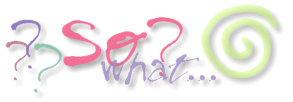Physical Signs
-
Changes in appetite or weight. Many people with depression
find that their appetite either decreases or increases. Their weight may
shift dramatically, either up or down.
-
Sleep disturbances. People with depression may have
difficulty falling asleep and may wake up periodically throughout the night.
They may wake too early or oversleep. Or they may have trouble staying
awake during the day.
-
Sluggishness. Depression slows people down -- emotionally,
mentally, and physically. People with depression often talk, react, and
walk slower than they did before becoming sick.
-
Agitation. Depressed people may show signs of agitation,
such as fidgeting, pacing, and wringing hands.
-
Sexual problems. Depression can drastically hurt a
person's sex life. It lowers both desire and enjoyment of sexual activity.
-
Digestive disturbances. Nausea, heartburn, indigestion,
and abdominal pain are common in depressed people. Other gastrointestinal
complaints include constipation and diarrhea.
-
Other physical complaints. Depression can also
cause headaches, back and neck aches, muscle cramps, blurred vision and
chronic pain.
Behavioral Signs
-
Avoidance and withdrawal. People with depression may
avoid everyday or enjoyable activities and responsibilities. They may withdraw
from their roles as spouse, parent, friend, student, or employee. The bedroom
or even the internet can become a favorite place to escape and find solitude.
-
Clinging and demanding. The depressed person
may become more dependent on some relationships and behave with an exaggerated
sense of insecurity.
-
Activities in excess. A depressed person may appear
to be out of control. He or she may drink too much, abuse drugs, or overeat.
-
Restlessness. The restlessness brought on by depression
may lead to such behaviors as fidgeting, chain smoking, and going on spending
sprees.
-
Painful or suicidal gestures. Depressed individuals
cause themselves physical pain or take extraordinary risks, such as standing
or driving in dangerous places. Tragically, many attempt to end their own
lives.
|
 Cognitive Signs Cognitive Signs
-
Negative thoughts. A depressive mood can bring
on an onslaught of negative thoughts, most of which will disappear or diminish
once the depression has lifted.
-
Difficulty organizing thoughts. People with depression
often have problems concentrating or remembering. They may find themselves
unable to follow a conversation, an article, or even a TV show plot. Decisions
become increasingly difficult.
-
Negative view. People with depression may become pessimistic,
perceiving themselves, their life, and their world in a very negative light.
-
Worthlessness and guilt. Depressed people may obsess
over their perceived faults and "failures," feel tremendous
-
Helplessness and hopelessness. Depressed people often
believe that there is nothing they can do to relieve their feelings of
depression and that the illness will never lift.
-
Delusions and hallucinations. A person with depression
may sometimes see or hear things that do not exist, or believe that an
imagined event occurred.
-
Death. Depressed people may have frequent thoughts
of death and suicide.
Emotional Signs:
-
Sadness. Depression brings on feelings of deep sadness.
The person may feel despondent and hopeless, perhaps with a sense of doom.
-
Loss of pleasure or interest. People with depression
lose interest in activities that once brought them pleasure. Experiencing
pleasure is increasingly difficult.
-
Boredom. People with depression often feel bored
regardless of their environment.
-
Anxiety. The person may become anxious, tense, and
panicky.
-
Turmoil. The person may feel worried and irritable.
remorse, and declare themselves worthless. Many blame themselves for feeling
and behaving as they do.
|










